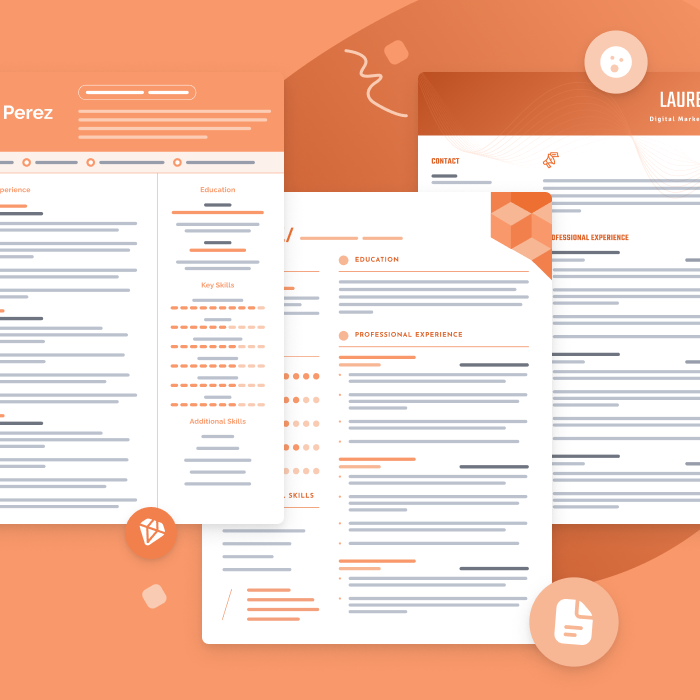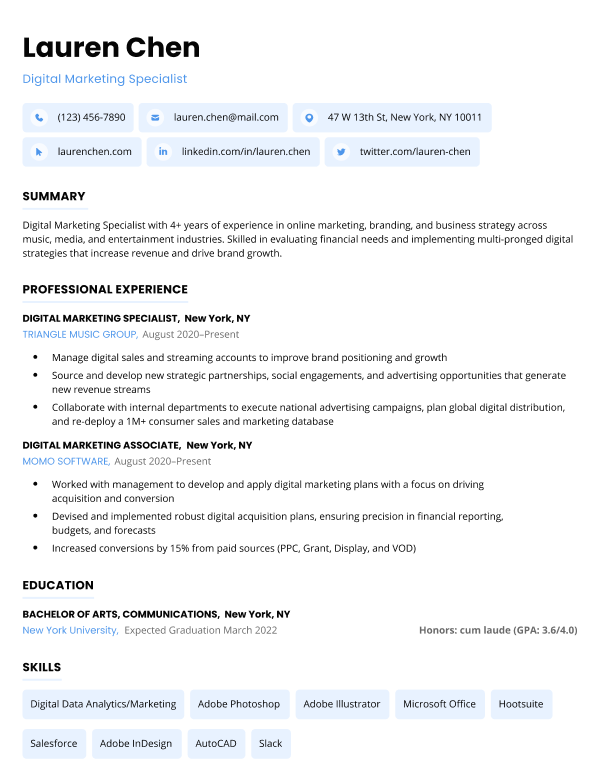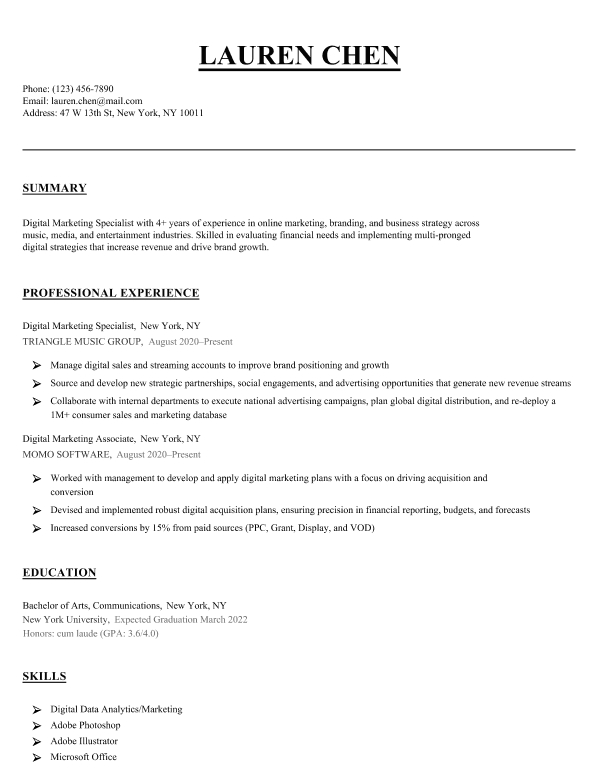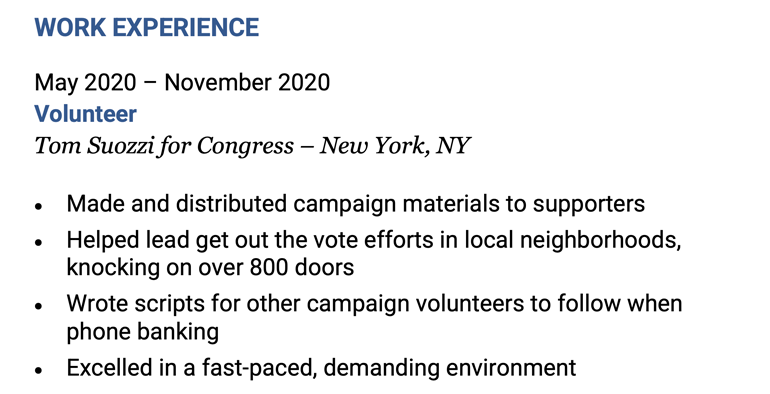Including volunteer work on your resume is a good way to show employers how your skill set makes you qualified for your target role, especially if you don’t have any other relevant experiences to list.
We show you how to put volunteer work on your resume and frame it in a way that highlights the skills you picked up during your time as a volunteer.
Should you include volunteer work on your resume?
Yes, you should include volunteer work on your resume if it’s relevant to the job you want or if you lack formal work experience. Listing volunteer experience on your resume is a great way to demonstrate to employers that you’re hard working and involved in your community.
In fact, according to a LinkedIn survey, one out of five hiring managers in the U.S. agreed that volunteer experience was a factor in why they hired a candidate.
Our free-to-use resume builder can make you a resume in as little as 5 minutes. Just pick the template you want, and our software will format everything for you.
Listing volunteer work is particularly important if you:
- Have limited paid professional experience, like if you’re still a high school or college student.
- Are transitioning careers and have volunteer experience that’s relevant to your new career.
- Have a gap in your resume
- Want to highlight leadership skills that you haven’t yet developed through your professional career.
However, if you already have years of relevant work experience or if your volunteer work isn’t related at all to the position you want, it’s best to leave it off your resume.

The best resume templates for 2024
One of the best ways to make your resume is by filling out one of our free resume templates. All our templates are designed by experts and free to download for Microsoft Word or Google Docs.
How to list volunteer work on your resume
In this video, our career expert Eva goes over the recommended way of listing volunteer work on a resume:
Volunteer work should be listed on your resume using the same format as your work experience section. In other words, you should include the organization you volunteered for, its location, the time frame, followed by a bulleted list explaining what you accomplished while volunteering there.
Depending on whether you’re a student, a fresh grad, or a more seasoned professional, you’ll also want to make sure you’ve chosen the right resume format first. Selecting the appropriate resume format will allow you to highlight your most important relevant information and show that you know how to make a resume stand out from other candidates’.
Here’s an example of volunteer experience on a resume:
Volunteer, Cranford Food Distribution Center, Cranford, NJ
May 2020 – Present
- Trained 5 new volunteers, helping them develop a strong commitment to community service.
- Helped prepare food and dish out meals to over 200 people per day.
- Planned and organized two successful fundraising events, which raised the food bank over $2,500 in total.
However, if your volunteer experience isn’t highly relevant to the job you want, list it on your resume using a shorter format.
For example, here’s how you can include volunteer experience on your resume without taking up too much space:
Big Buddy’s Reading Help, Volunteer
June 2018 – January 2019
- Tutored grade school children in Los Angeles in reading comprehension.
Use hard numbers to make your resume more impactful. For example, mention how many people you helped feed as a soup kitchen volunteer, or how much money you helped raise during a fund drive.
Where to put volunteer work on a resume
Depending on the type of volunteer experience you have, there are two places on your resume to list it: your experience section or in a dedicated volunteer work section.
Experience section
If your volunteer experience is highly relevant to the job you’re applying for, you should include it in the work experience section of your resume, alongside any paid positions you’ve held.
In your experience section, include three to four bullet points highlighting the skills on your resume that you picked up from your volunteer work, and any notable accomplishments.
Example
Here’s a sample showing how to write a resume that features your volunteer experience in your experience section:
Dedicated section
If you have volunteer experience that’s not especially relevant to the job you’re applying for, list it in a separate section on your resume labeled “Volunteer Experience,” “Community Service,” or “Additional Activities.”
Include a sentence briefly describing your volunteer experiences under each entry. These sentences should be kept short, as you don’t want to focus too much of your resume on experience that isn’t directly relevant to the position. Describe current volunteer roles using the present resume tense and the past tense for previous volunteer experiences.
If you’re struggling to format all the sections of your resume properly, try using our 12-minute resume builder. Most resume builders have the option to add an additional volunteer work section and will do all the work of formatting it for you.
Example
Here’s an example of how to list volunteer experience in a dedicated section:

Click to rate this article
4.5 Average rating

















